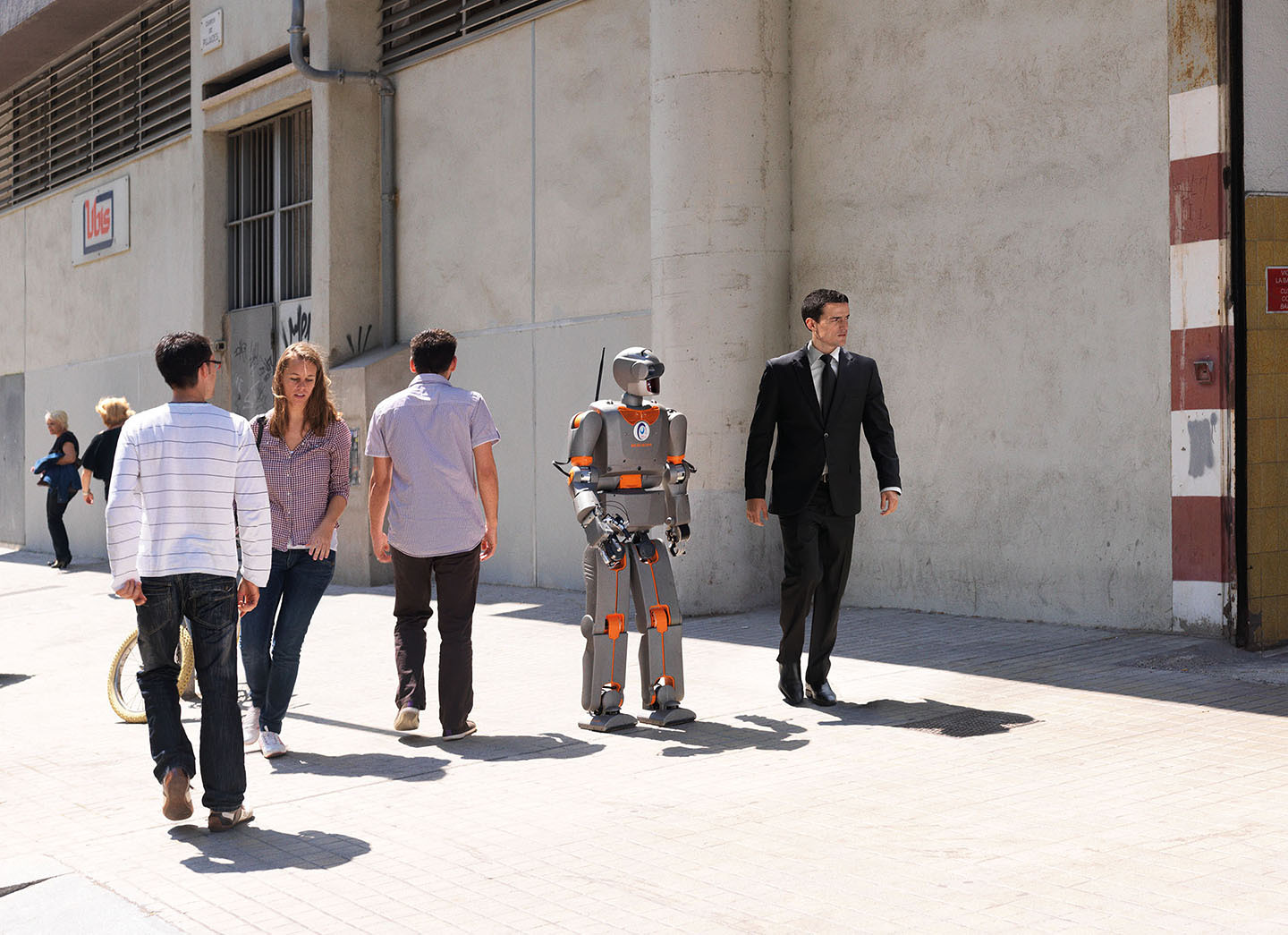
Photo ©Vincent Fournier from the Man Machine series
You’ve heard of business for a greater good, make way for artificial intelligence for a greater good. That’s the mission behind a recently launched robotics and AI competition founded and created by TRIUM Global Executive MBA alumnus Philippe Nacson.
If the thought of a robot competition sounds too futuristic or too scary for your liking, it’s that exact thinking that Nacson says his competition, The Robot Of The Year, sets out to dispel. Fears of artificial intelligence wiping out jobs or — worst yet — a complete and utter takeover where robots conquer all of humanity? Those are the very ideologies that Nacson intends to counter with this year’s challenge which centers on the ability for artificial intelligence to help foster a better, more sustainable world.
For those who still aren’t convinced AI is good for anything beyond verbal commands to Siri and Alexa, Nacson invites them to consider robots working with children who have autism and helping them grow in a better fashion, exoskeletons helping handicapped people to work in the same manner as people without any handicaps, or robotics used in the health sector to improve treatments provided to humans.
11 INDUSTRIES, 10 CRITERIA
Healthcare and education are just two of the 11 industries that the competition involves. Others include energy, environment, fintech, retail, agriculture, and more. Each entry into the competition must fall within one of these categories to be judged by a “jury” of renowned experts, scientists, philosophers, and entrepreneurs in the robotics and AI fields.

TRIUM Global Executive MBA alumnus Philippe Nacson is the founder and creator of The Robot of The Year Challenge
“We’ve identified these as industries where the application of AI is interesting and aligned with our core principle which is the ethical use of AI and robotics,” explains Nacson. In short, he believes that artificial intelligence and robots can significantly improve people’s lives, as well as help us to build a better and more sustainable world. “There are a whole bunch of projects in this field helping humans living a better life.”
And with that brings the criteria that challengers must meet when they participate in The Robot of the Year Challenge. In so many words, competing participants must design their AI or robotics project with adherence to 10 ethical principles to ensure the projects rooted and grounded in making the world a better place. “Inspired by the universal laws governing humans,” the competition website declares, “The Robot of the Year principles are consistent with international and ethical laws recognised worldwide.”
Such principles include “human responsibility” which says robots are the creation of humans and humans cannot ignore the laws that govern them therefore, the laws aiming at securing human lives also apply to robots. The second core principle: “physical integrity” declares that robots do not kill or harm. The list goes on to include other guiding core beliefs such as well-being (robots ease human labor), privacy (robots never disclose personal data, information, or inner thoughts entrusted to them), and education (robots help humans become better individuals and help humanity navigate its expending landscape of knowledge and diversity).
The competition officially launched last week in France during a tech convention alongside KPMG, one of the event’s heavyweight sponsors. Nacson says sponsors are, “Helping us communicate the competition and obviously tapping into their networks as far as bringing in experts to take part and participants to compete. They’ve also introduced me to other key partners that we’re currently in discussions with and they’re helping me for the fundraising side of the project.”
Nacson explains there are two angles to the robotics and AI challenge: prizes that will be awarded to competitors in the form of financial backing for their projects as well as a global ethical investment fund to help spur investments into ethical AI which is currently being finalized.
‘I’M NOT TRAINED AS A CREATIVE. I’VE BEEN WORKING IN FINANCE THE LAST 20 YEARS.’
The fact that he’s created The Robot of the Year challenge and launched a company to drive AI investing has no one more surprised than Nacson himself. A 20-year career in investment banking, finance, and private equity led him to the TRIUM Global Executive MBA. The innovative degree program is jointly issued by NYU’s Stern School of Business, London School of Economics, and HEC Paris School of Management with modules that take place in six different cities around the world. He enrolled in 2010 and graduated from the program in 2012.
Nacson’s motivations for going to business school were to explore more fields and to enlarge his vision and understanding of business. Never was the intention for the MBA experience to awaken the entrepreneur in him or send him off exploring a line of work outside of the financial sector. Yet that is exactly what happened.





Questions about this article? Email us or leave a comment below.